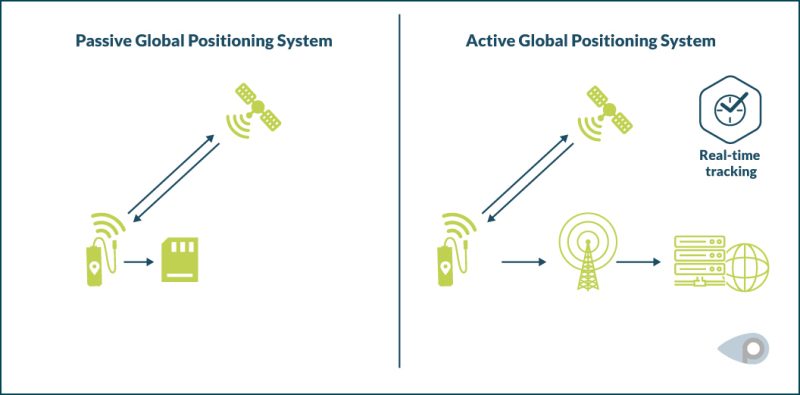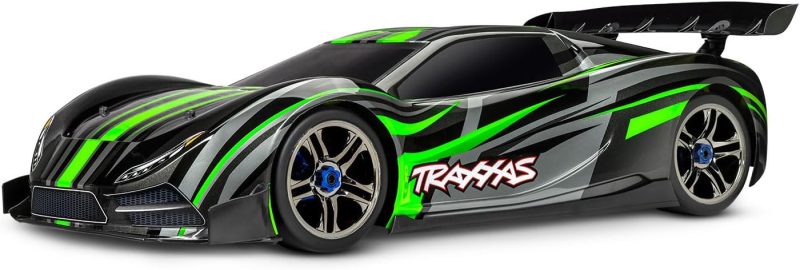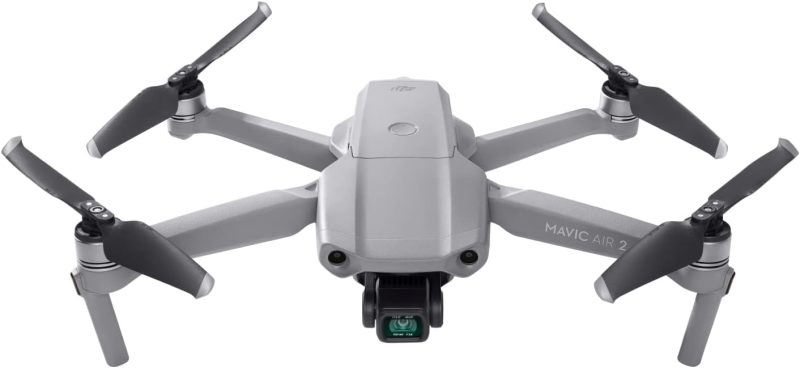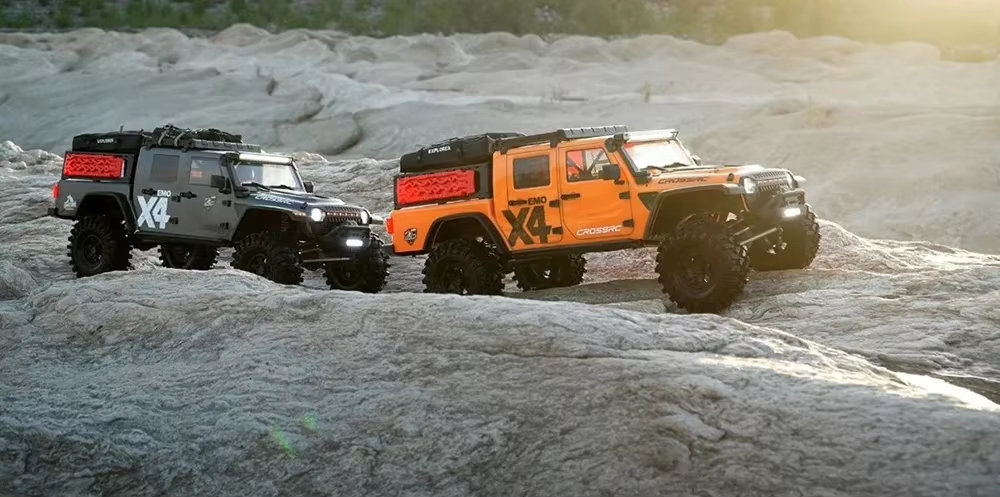Imagine this: you’re neck-and-neck in the final lap of your biggest RC race, heart pounding, when suddenly your car veers off course and disappears into the tall grass. The race is lost, and worse, you might lose your prized car forever. This is the kind of frustration GPS tracking eliminates in the world of radio-controlled vehicles. In this comprehensive guide, we’ll explore how GPS technology works in RC cars, the benefits it offers, and how to choose the perfect model for your needs. Buckle up and get ready to take your RC adventure to new heights!
The Evolution of GPS Tracking in Remote Control Cars
Picture this nightmare scenario: you’re in the middle of an exhilarating RC car race when suddenly, your prized vehicle vanishes into the distance. Panic sets in as you realize you have no idea where it went or how to find it. This was all too common for RC enthusiasts until the advent of GPS tracking technology.
Over the past decade, GPS tracking has become increasingly popular in the world of RC vehicles. What started as a niche feature has now evolved into a must-have for serious hobbyists and racers alike. From helping recover lost or stolen cars to providing invaluable performance data, GPS tracking has revolutionized the way we enjoy our remote control cars.
How GPS Tracking Works in RC Vehicles
To understand the magic behind GPS tracking in RC cars, let’s first take a look at how the technology works. GPS, or Global Positioning System, is a network of satellites that orbit the Earth, constantly transmitting signals to receivers on the ground. These receivers, like the ones found in GPS-enabled RC cars, use the signals to calculate their exact location, speed, and direction.
Here’s a breakdown of the key components involved in GPS tracking for RC vehicles:
- GPS Module: This is the heart of the tracking system. It contains a GPS receiver that communicates with the satellites to determine the car’s location.
- Antenna: The antenna is responsible for picking up the signals from the satellites and transmitting them to the GPS module.
- Receiver: The receiver processes the location data from the GPS module and sends it to a connected device, such as a smartphone or tablet, for real-time tracking and analysis.

The RC car’s GPS module receives signals from orbiting satellites. This data is then processed by the receiver to pinpoint the car’s location, which is displayed on your smartphone or computer via a dedicated app.
The Benefits of GPS Tracking in Remote Control Cars
Now that we understand how GPS tracking works, let’s dive into the benefits it offers for RC car enthusiasts.
1. Anti-Theft Protection
One of the most significant advantages of GPS tracking is its ability to help recover stolen or lost RC vehicles. With real-time location data at your fingertips, you can quickly track down your missing car and bring it back home safely.
John, a seasoned RC racer, had his custom-built off-roader stolen from his trackside pit. Devastated, he activated the GPS tracker on his phone and watched in real-time as the thief drove towards the highway. He alerted the police, providing precise location updates, leading to the thief’s apprehension and John’s car being returned.
Some GPS tracking systems even offer advanced security features like geofencing, which allows you to set virtual boundaries for your car. If the vehicle leaves the designated area, you’ll receive an instant alert on your connected device, giving you a head start on the recovery process.
Real-world statistics highlight the importance of anti-theft measures in the RC community. According to a survey conducted by the RC Car Manufacturer’s Association, over 10,000 high-end RC vehicles are reported stolen each year in the United States alone. GPS tracking has proven to be a powerful tool in combating this issue, with many owners successfully recovering their cars thanks to the technology.
2. Performance Tracking and Analysis
For serious racers and hobbyists, GPS tracking offers unparalleled insights into their RC car’s performance. By collecting data on speed, distance, and location, GPS-enabled vehicles allow drivers to analyze their techniques, identify areas for improvement, and optimize their car’s tuning for maximum performance.
Popular apps and software like TrackMaster Pro and RaceAnalyzer make it easy to visualize and interpret GPS data, providing users with detailed graphs, charts, and heat maps of their car’s performance. These tools can help drivers:
- Identify the fastest lines around a track
- Analyze acceleration and braking points
- Compare lap times and speeds
- Assess the impact of different gearing and tuning setups
With GPS data at their disposal, racers can take their skills to the next level and gain a competitive edge on the track.
3. Enhanced Racing Experience
GPS tracking doesn’t just benefit individual drivers – it also has the potential to transform the entire RC racing experience. Imagine a race where spectators can follow the action in real-time on their smartphones, where virtual leaderboards update instantly, and where drivers can compete against each other from anywhere in the world.
This is the future of RC racing, made possible by GPS technology. Some of the exciting features that GPS tracking brings to the table include:
- Live Tracking: Spectators can follow the position of each car on a virtual map, making it easier to keep up with the action even on large or complex tracks.
- Virtual Racing: GPS tracking enables drivers to compete against each other remotely, creating a global community of racers.
- Custom Challenges: Organizers can use GPS data to create unique challenges and obstacles for drivers, such as navigating to specific waypoints or maintaining a certain speed through a designated zone.
As GPS technology continues to evolve, the possibilities for enhancing the RC racing experience are endless.
Choosing the Right GPS-Enabled RC Car
With so many GPS-enabled RC cars on the market, choosing the right one can be a daunting task. Here are some key factors to consider when making your decision:
Types of RC Vehicles with GPS
GPS tracking is available in a wide range of RC car categories, each with its own unique benefits and challenges.
- On-Road Cars: These vehicles are designed for speed and handling on smooth surfaces like asphalt or concrete. GPS tracking can help racers analyze their cornering techniques and optimize their speed on straightaways.
- Off-Road Cars: Built for rugged terrain, off-road RC cars can benefit from GPS tracking for navigation and performance analysis on challenging courses.
- Drones: While not technically cars, RC drones equipped with GPS offer a unique aerial perspective for tracking and racing.
Some popular GPS-enabled RC car models include:
Key Features to Look For
When shopping for an RC car with GPS, there are several important features to keep in mind:
- GPS Accuracy: Look for models with high-quality GPS receivers that offer precise location data. Factors like signal strength and satellite connectivity can affect accuracy.
- Range: Consider the range limitations of the GPS system and choose a model that suits your needs. Some high-end models offer ranges of up to 10 miles, while others may be limited to a few hundred feet.
- Battery Life: GPS tracking can drain your RC car’s battery faster than normal use. While GPS tracking does consume some battery, it won’t leave your car stranded mid-race (unless you’re attempting a transcontinental RC road trip!). Look for models with efficient power management or extended battery life.
- Ease of Use: Choose a GPS system with user-friendly interfaces and mobile apps that make it easy to track and analyze your car’s performance.
- Additional Features: Some GPS-enabled RC cars offer extra features like return-to-home functionality, speed alerts, and data logging. Consider which features are most important to you.
Budget Considerations
GPS-enabled RC cars are available at a wide range of price points, from budget-friendly models under $200 to high-end machines that can cost several thousand dollars. In general, more expensive models offer better GPS accuracy, longer range, and more advanced features. However, there are plenty of mid-range options that provide excellent value for money.
Top GPS-Enabled RC Cars
| Model Name | Manufacturer | Type | Key Features | Price Range |
| Traxxas XO-1 | Traxxas | On-Road | High speed, telemetry, long range | $800-$1000 |
| Arrma Kraton 8S BLX | Arrma | Off-Road | Rugged design, waterproof GPS | $900-$1100 |
| DJI Mavic Air 2 | DJI | Drone | 4K camera, obstacle avoidance | $700-$900 |
| Axial SCX10 II | Axial | Crawler | 10-mile range, precise navigation | $400-$600 |
| Redcat Racing Shredder XTE | Redcat | On-Road | Budget-friendly, easy to use | $200-$300 |
| Losi 5ive-T 2.0 | Losi | Off-Road | Durable construction, long runtime | $1500-$2000 |
Let’s take a closer look at each of these top-rated GPS-enabled RC cars:
1. Traxxas XO-1

- The Traxxas XO-1 is a high-speed on-road car capable of reaching speeds over 100 mph. Its advanced telemetry system provides real-time GPS data on speed, distance, and location, making it a favorite among speed enthusiasts.
Pros:
- Incredible top speed
- Long-range telemetry
- Customizable gearing
Cons:
- Expensive
- Requires a smooth driving surface
2. Arrma Kraton 8S BLX

- Built for off-road adventures, the Arrma Kraton 8S BLX is a rugged and waterproof RC car with a built-in GPS module. Its durable construction and powerful motor make it ideal for tackling tough terrain.
Pros:
- Waterproof GPS system
- Excellent off-road performance
- Durable design
Cons:
- Large size may be challenging for some drivers
- Higher price point
3. DJI Mavic Air 2

- The DJI Mavic Air 2 is a compact drone with a high-quality 4K camera and advanced GPS tracking capabilities. Its obstacle avoidance sensors and intelligent flight modes make it easy to capture stunning aerial footage.
Pros:
- Excellent camera quality
- Intelligent flight modes
- Easy to transport
Cons:
- Shorter flight time than some larger drones
- Regulations may limit where you can fly
The Future of GPS Tracking in RC Vehicles
As GPS technology continues to advance, we can expect to see even more exciting developments in the world of remote control cars. Some emerging trends to keep an eye on include:
- Improved Accuracy: Next-generation GPS receivers promise to offer even greater precision, with accuracy down to the centimeter level.
- Integration with Other Technologies: GPS tracking is already being combined with technologies like LiDAR and computer vision to enable features like autonomous navigation and obstacle avoidance. Imagine an RC car that can drive itself to a designated location!
- Swarm Robotics: GPS tracking opens up the possibility of coordinating multiple RC vehicles to work together in swarms, with applications ranging from search and rescue to agricultural monitoring.
As these trends develop, the future of GPS in the RC car hobby looks brighter than ever.
Conclusion: Embrace the Power of GPS Tracking in Your RC Car
GPS tracking has transformed the RC vehicle hobby, offering enthusiasts unparalleled opportunities for performance analysis, theft recovery, and enhanced racing experiences. By understanding how the technology works and what features to look for, you can choose the perfect GPS-enabled car to take your passion to new heights.
So what are you waiting for? Embrace the power of GPS tracking and embark on a thrilling new chapter in your RC journey. With real-time data at your fingertips and a world of possibilities ahead, there’s never been a better time to join the GPS revolution. Happy racing!
Read Other Posts
- The Future of RC Cars: Electric vs. Fuel-Powered Models – An Environmental Perspective
- Optimizing Your RC Car’s Differential for Different Terrains: A Comprehensive Guide
- The Ultimate Guide to RC Car Batteries: Lithium-ion vs. LiPo
- Benefits of Brushless vs. Brushed RC Car Motors
- RC Car Telemetry Systems Explained: How Advanced Data Boosts Your Racing Performance
